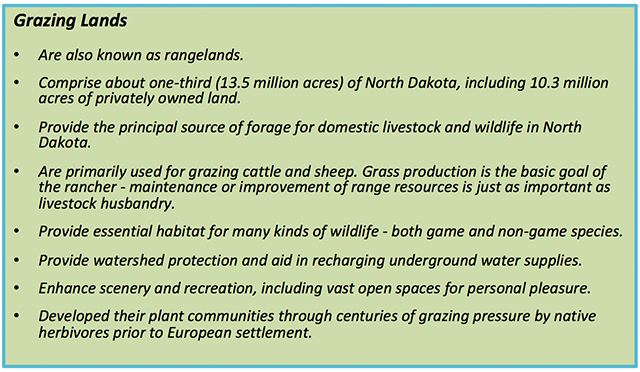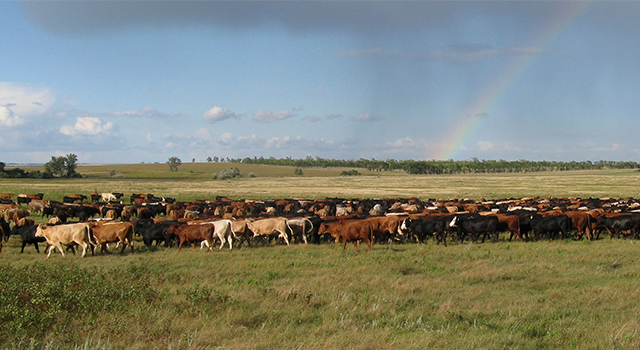The North Dakota Grazing Lands Coalition (NDGLC) was established in 1996 to promote the health and sustainability of the 13.5 million acres of grazing lands in North Dakota through education about the values and multiple benefits of well-managed grazing resources and by voluntary actions. NDGLC supports and respects the rights of private property landowners.
NDGLC believes that given the appropriate tools and training, grassland managers will be better prepared to make cost-effective and environmentally sound decisions. To promote this, the Coalition provides local leadership, guidance, information, and technical assistance to and for grassland managers.
Tours of ranching and farming operations are popular and well-attended events that educate landowners, policy-makers and agency employees about real people and their work to increase soil health, profitability and quality of life on their lands. For instance, the August 2018 ND Grasslands Policy Tour and Workshop, co-sponsored by NDGLC and Prairie Pothole Joint Venture, featured Oswald and Black Leg Ranches in the Missouri Coteau (read more about the tour here).
Another well-received educational program is NDGLC’s mentoring program, which pairs interested learners such as landowners and agency personnel with experienced grazing lands managers for guidance and council. Each mentor’s areas of expertise are listed so that learners can find the right match. Presently, 21 individuals and four couples have stepped up to be mentors.
NDGLC is clear that mentors provide advice based on knowledge and experience gained on their own operations plus interactions with ranchers across the state and that, because of the uniqueness of every ranch, what is learned from a mentor may need to be adapted to suit personal goals, available resources and management abilities.
Mentors’ areas of expertise include:
- Goal Setting/Decision Making
- Monitoring & Record Keeping
- Fencing
- Economics of Grazing Management
- Cropland Aftermath Grazing
- Grazing Management/Rotations
- Livestock Movement
- Water Development/Placement
- Complementary Grazing
- Livestock as a Management Tool
- Grazing Lands for Wildlife
- Pest Management
- Grazing Irrigated Pasture
- Grazing Management for Expired CRP
- Cover Crops
- Grass Finishing
- Winter Grazing Strategies
- Energy Development Impacts & Grazing
To learn more about the mentoring program, click here.


